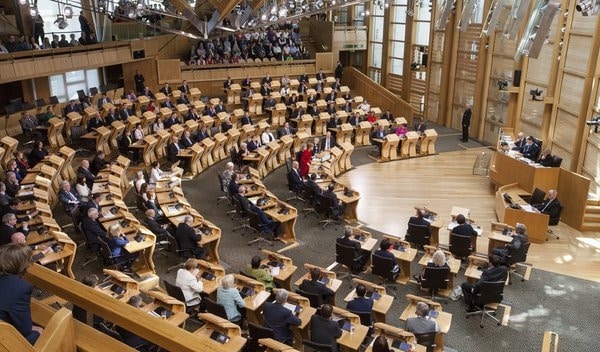What dramatic changes in Holyrood leadership means for property in Scotland.
This week we have seen a political drama crystallise at the Scottish Parliament as crisis votes led to the First Minister, Humza Yousaf, stepping down.
So how did it play out?
There were two motions of No-Confidence tabled.
The first, penned by the Scottish Conservatives, targeted Humza Yousaf as First Minister and had no constitutional or legal consequences, but carried great moral and political weight.
The second, in the name of Scottish Labour, stated no confidence in the entire Scottish Government and would, if passed, remove all Ministers from office. MSPs would then have 28 days to agree, by simple majority, on a replacement. If they cannot, then Scotland goes to the polls.
The Tory motion secured the support of all the opposition parties, notably including the Greens following the end of the ‘groundbreaking’ Bute House Agreement last week which brought the alliance between the SNP and Greens to a close.
With frustration on both sides, the recent decision to abandon Scotland’s target to cut carbon emissions by 75% by 2030 was the final straw for the Greens. In his resignation speech, Yousaf said he had “underestimated” the level of hurt after ending the power-sharing deal.
What does the collapse of the agreement mean for housing?
It may signal a reset for housing policies, as the termination also meant that Scotland’s Minister for zero-carbon buildings and tenants’ rights, Patrick Harvie, was dismissed from government. It is unclear whether Paul McLennan, Scotland’s SNP Housing Minister, will take on his duties, or whether a new SNP Zero-carbon Buildings Minister will be put in place.
Having been in post since 2021, Mr Harvie had brough in a number of plans for private sector rent controls and homeless prevention duties for landlords. He had also proposed a Heat in Buildings Bill, which would ban fossil fuel heating in all homes by 2045.
In September 2022 Scotland set up emergency legislation to cap rents, limiting in-tenancy rent increases to 3% per year. This legislation expired in April this year, and the Scottish Government introduced a transitional rent control framework as a temporary measure to keep rental increases in the private rented sector at bay while the new Housing (Scotland) Bill is finalised. A draft Housing Bill is expected to be introduced in the Scottish Parliament by summer 2024 and come into force in 2025.
The rent cap has bitterly divided the housing community – largely welcomed by renters, but heavily criticised by landlords and developers, who say it will force investment south of the Border, where similar restrictions are not in place.
Rachel Colgan, Founding Director of Building Relations, recently attended the Scottish Property Federation Annual Conference in Glasgow just days before the end of the SNP/Green alliance was announced.
At the event, Chris Stewart, of the Chris Stewart Group, which has ownership and operational interests across the residential, office, retail, hotel, serviced apartments, and behind a number of city centre projects, accused SNP Housing Minister Mr Lennan of “killing the market” during an exchange on the Housing Bill.
The loss of up to £3 billion of investment, mainly in the build to rent sector, has been blamed directly on the government’s rent controls and planning system.
The industry has echoed this sentiment, urging the government to refocus on the economy and new housing investment.
Scottish Property Federation chair Maria Francké said: “We agree with the First Minister that the ending of the Bute House Agreement offers the Scottish Government an opportunity to refocus its priorities. Today we call on the Government to reprioritise Scotland’s economy and promote investment into the infrastructure that Scotland needs to make it the best place to live and work.”
Yousaf will remain as First Minister until his successor is chosen, with the SNP accepting nominations until Monday 6th May.
Candidates are required to get 100 nominations from at least 20 local party branches and if more than one candidate meets that test, there will be a leadership contest. If no new First Minister can be selected within 28 days, then we go to the polls.
It is yet to be seen if we will have a new First Minister next week, or in a couple of months’ time.



